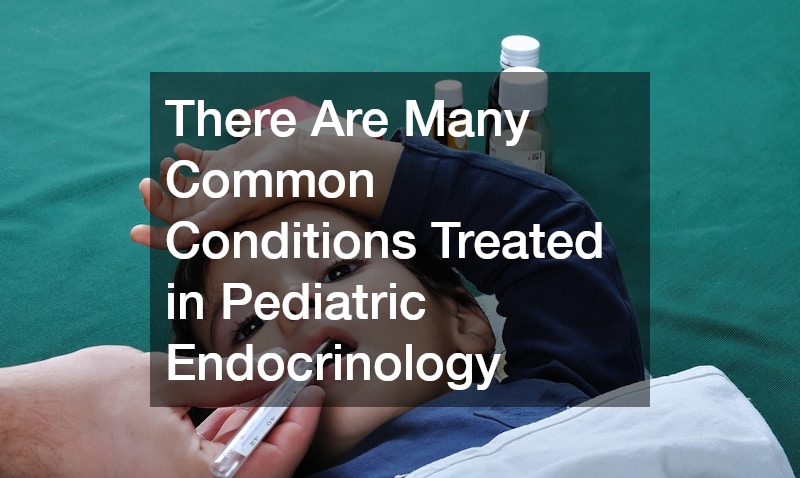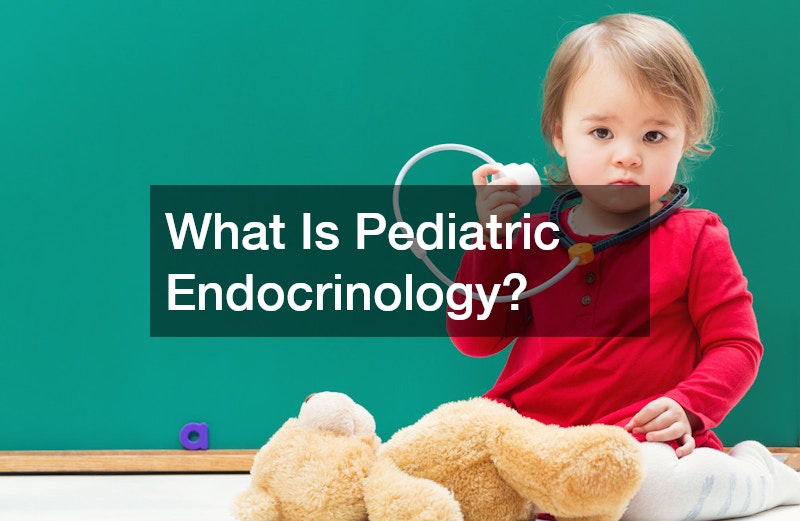Pediatric endocrinology is a specialized branch of medicine that focuses on diagnosing and treating hormonal disorders in children and adolescents. Hormones, produced by glands in the endocrine system, play a critical role in regulating growth, metabolism, and development. Pediatric endocrinologists are medical professionals who help manage conditions related to imbalances in these hormones, which can affect a child’s overall health and well-being.
The Role of Pediatric Endocrinologists
Pediatric endocrinologists undergo extensive training in both pediatrics and endocrinology, giving them the expertise to treat hormonal issues specific to children. Since children’s bodies are still developing, their hormone-related problems require specialized attention different from those of adults.
These professionals work with a range of issues, from growth disorders to diabetes, ensuring that young patients receive the care they need to live healthy lives.
Common Conditions Treated in Pediatric Endocrinology
Children can suffer from a variety of endocrine-related disorders, many of which can have long-term effects if left untreated. Some of the most common conditions treated by pediatric endocrinologists include:
Growth Disorders: These occur when a child’s growth is stunted or accelerated due to hormonal imbalances. Growth hormone deficiency or conditions like gigantism may require intervention to regulate a child’s growth.
Diabetes: Both type 1 and type 2 diabetes can affect children. Pediatric endocrinologists help young patients manage their blood sugar levels through lifestyle modifications, insulin therapy, and education for both the child and family.
Thyroid Disorders: Hyperthyroidism (overactive thyroid) and hypothyroidism (underactive thyroid) are common conditions treated in pediatric endocrinology. These conditions can affect metabolism, energy levels, and growth.
Puberty Disorders: Puberty can sometimes occur too early (precocious puberty) or too late (delayed puberty), both of which may indicate underlying hormonal issues. Pediatric endocrinologists help manage these conditions to ensure proper development.
Adrenal Gland Disorders: The adrenal glands produce hormones such as cortisol and adrenaline, which are essential for stress responses and metabolism. Conditions like congenital adrenal hyperplasia (CAH) require careful monitoring and treatment.
Diagnostic and Treatment Approaches
Pediatric endocrinologists use various diagnostic tests to assess hormone levels, identify disorders, and tailor treatment plans. These may include blood tests, imaging studies, and growth charts to track a child’s development. Treatments can range from hormone replacement therapies to lifestyle adjustments, depending on the condition. Continuous monitoring and adjustments are often needed as the child grows.
Pediatric endocrinology is a vital field that helps children facing hormonal disorders live healthier, more balanced lives. By addressing issues related to growth, metabolism, and development, pediatric endocrinologists play a crucial role in supporting children’s long-term health and well-being. Through early diagnosis and specialized care, they ensure that young patients receive the right treatment at critical stages of their growth and development.
Watch the video above to learn more about Dr. Skuza pediatric Endocrinology!
.




